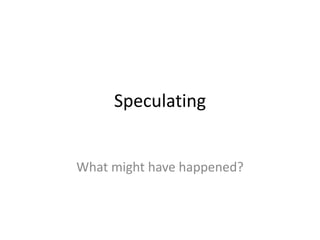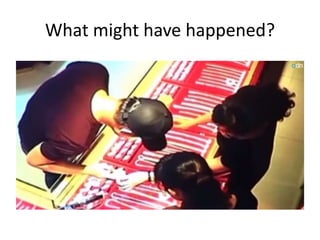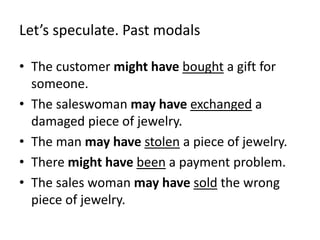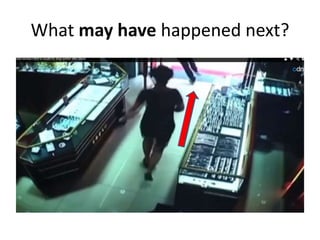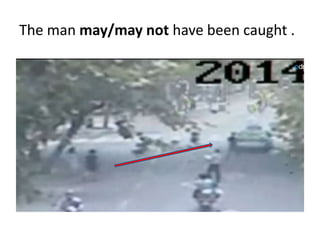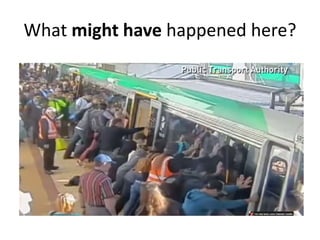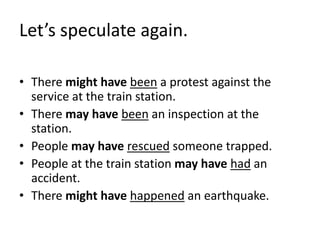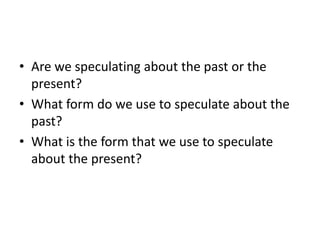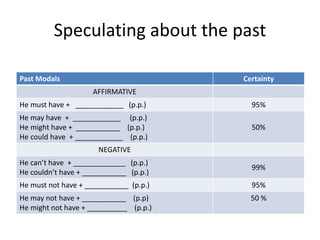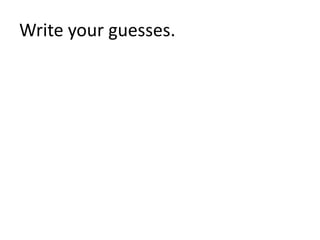Speculating news in levels-Past Modals
- 1. Speculating What might have happened?
- 2. What might have happened?
- 3. Let’s speculate. Past modals • The customer might have bought a gift for someone. • The saleswoman may have exchanged a damaged piece of jewelry. • The man may have stolen a piece of jewelry. • There might have been a payment problem. • The sales woman may have sold the wrong piece of jewelry.
- 4. What may have happened next?
- 5. The man may/may not have been caught .
- 6. Check here your guesses • http://www.newsinlevels.com/products/man-tries- to-steal-level-3/
- 7. What might have happened here?
- 8. Let’s speculate again. • There might have been a protest against the service at the train station. • There may have been an inspection at the station. • People may have rescued someone trapped. • People at the train station may have had an accident. • There might have happened an earthquake.
- 9. Check your guesses • http://www.newsinlevels.com/products/peopl e-help-a-man-level-3
- 10. • Are we speculating about the past or the present? • What form do we use to speculate about the past? • What is the form that we use to speculate about the present?
- 11. Speculating about the past Past Modals Certainty AFFIRMATIVE He must have + ____________ (p.p.) 95% He may have + ____________ (p.p.) He might have + ___________ (p.p.) 50% He could have + ____________ (p.p.) NEGATIVE He can’t have + _____________ (p.p.) He couldn’t have + ___________ (p.p.) 99% He must not have + ___________ (p.p.) 95% He may not have + ___________ (p.p) He might not have + __________ (p.p.) 50 %
- 12. Now you. Speculate about the following picture:
- 14. Check your answers. • http://www.newsinlevels.com/products/pig-on- a-surfboard-level-3/ • Who was the closest?
